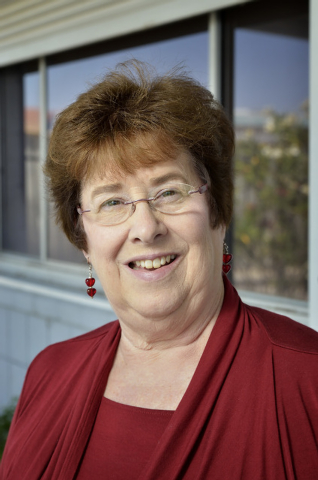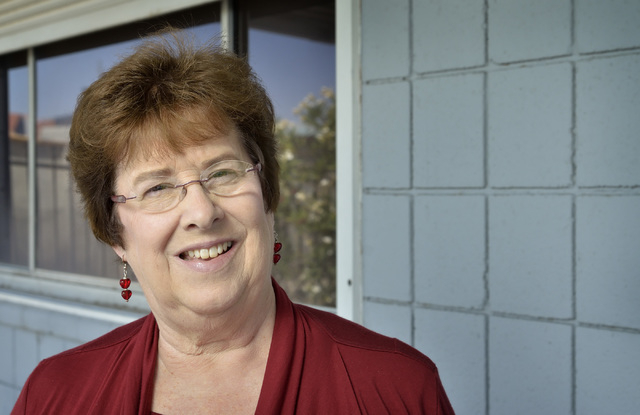Chief of professional organization derives satisfaction from helping people
For Lesley Dickson and her profession, the job satisfaction comes from getting to know people and help them.
That’s what drew Dickson to psychiatry and to be an advocate of the behalf of patients and the profession as executive director of the Nevada Psychiatric Association.
The 66-year-old Dickson, who grew up in San Diego, worked 10 years as a biochemistry researcher before deciding to go to medical school. Little did she know at the time, she would embark on a career in psychiatry.
“I had the intention of doing something different, but I had always done some counseling of people. In my third year of medical school when you start doing rotations in the different specialties, it turned out I enjoyed psychiatry the most and decided to do that. I enjoy getting to know people, really know, and in a lot of specialties in medicine you really don’t. We get to spend time with people, get to know them and help them.”
Dickson worked for the Veterans Administration in New York and transferred to the VA in Las Vegas 12 years ago where she worked for four years before retiring from her position and going into private practice.
Dickson heads a professional organization in Nevada with 145 members, a little more than half of the psychiatrists in the state, which if including residents totals about 280.
The organization works with elected officials to advocate legislation and funding for psychiatric needs in Nevada to improve mental health. It also hosts conferences with speakers coming throughout the U.S. and abroad as part of continuing education programs for its members to help with their management of psychiatric illnesses.
Psychiatrists are physicians who went to medical school and obtained their medical degree. They do a four-year residency after medical school specializing in psychiatry and have the ability to prescribe medicine. By contrast, a psychologist has a doctorate or master’s degree and provides therapy but can’t prescribe medicine.
“When I started and finished my training in 1986, we got a lot more training in doing psychotherapy and we were able to do more of it,” Dickson said. “It has changed where there are time constraints where you have to see a lot of patients in a short period of time so we have less time to spend with our patients. We do focus more on medication management.’’
With psychotherapy now become the focus of psychologists, the two professions complement each other to take care of patients, Dickson said.
Psychologists tend to defer the treatment of serious mental illnesses like bipolar and schizophrenia and major depression where medications make a significant difference, Dickson said. Other problems, however, such as post traumatic stress disorder and anxiety disorders respond well to psychotherapy, she said.
Psychiatrists focus on diagnosing and treating mental illness from a biological point of view, Dickson says. They’re experts in the workings of the brain and use medications to adjust what’s going on in the brain that might improve the symptoms whether they are people who are bipolar, manic depressive or some other chemical imbalance, she says.
“Because we are physicians we can also look at whether different kind of medical problems like thyroid disease that might causing what looks like a psychiatric problem but isn’t because a lot of the symptoms overlap,” Dickson said. “We can order blood tests and interpret them in terms of understanding what’s going on. A lot of us work in hospitals doing in-patient psychiatry, which is taking care of the sicker patients with more severe mental illnesses.”


















